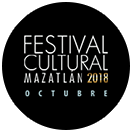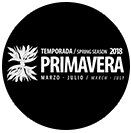From Culiacán, the poet Francisco Alcaraz traveled to Mazatlán to participate in the Voces a Distancia poetic meeting, a pleasant talk about his literary work with Mazatlecan readers.
Maestra and writer María Félix Raygoza introduced the poet and in a pleasant way led the thread of the conversation with the renowned Sinaloan writer.
The meeting became a journey through the different stages that were “kneading”, “shaping” Francisco Alcaraz from his childhood, until he established himself as one of the most notable young poets in Sinaloa.
The writer spoke with fluency, ingenuity and ease on fundamental topics such as his childhood, adolescence, family, his first readings, vocational awakening, death, women poets, his poetic work and established a position before poetry as a discipline or inspiration. .
Paco Alcaraz recognized that he had the great advantage that during his childhood there was no internet and personally he was able to approach books from an early age because there were books in his house and his father read poetry.
Questioned by María Félix, the Culiacan poet recalled that he began to write before reading poetry, because at eight years of age, he wrote his first verses accompanied by a bird that he drew in a letter addressed to his cousin.
With a pleasant and salty conversation, Paco Alcaraz generously opened the book of life to share his inclination for anthropology, a career that he did not study “because there was none here”, and the discovery of degrees in sociology, philosophy or history that did not interest him either, until, guided by his uncle, he decided to study Hispanic Language and Literature at UAS.
When talking about the 2002 Elías Nandino National Prize for Young Poetry that he won for “La musa enferma”, Paco Alcaraz commented that at that time there were a lot of literary support that no longer exist, those were other times.
When presenting the literary work of the guest poet María Félix, he highlighted that the poetic work of Paco Alcaraz is in various anthologies such as: Los límites agreados; Mexican poets 1950-1982 by Margarito Cuéllar (UNAM, 2012); General anthology of Mexican poetry: Poetry of current Mexico from the second half of the 20th century to our days, by Juan Domingo Argüelles (Océano, 2014); Double edged mirror. Binational Anthology of Poetry on Colombia-Mexico Violence, by Iván Trejo (Atrasalante/UAS, 2014) and Essential Anthology of Mexican Poetry: One Hundred Poets from the 15th to the 21st Centuries, by Juan Domingo Argüelles (Océano, 2017), among others.
In this meeting with Mazatlecan readers, Francisco Alcaraz assured that the 21st century is the century of women’s poetry and that in Mexico there are many very interesting poetesses who write like women and do not have to walk through the clouds as they were required to do before.
The author read some poems from his book Principia Mortis and shared a poem inspired by the Schrödinger paradox that talks about the superposition theory of quantum physics, among other pieces of “quantum” poetry.
Almost at the end of the event and when asked by the public, Francisco Alcaraz responded that the writer must have discipline because he always has to be reading, attentive to what is happening.
“We poets are lazy in general, (but) we like to write, poetry is not ugly, discovering it and reading it is always a joy…. I really enjoy the process when it happens, but it’s always very slow.”
He revealed that when writing a poem he works on an image, a theme or a song and the idea moves forward; on the contrary, if he sits down, he won’t write anything.
At the end, María Muñiz, coordinator of Literary Thursday, gave the author a recognition granted by the Instituto de Cultura, Turismo y Arte de Mazatlán.
With Voces a Distancia the Literary Thursday program presented by CULTURA closed with a flourish as part of Spring Season 2023.











